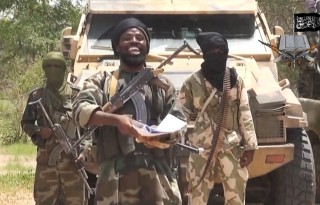Consistent reports of bombings and indiscriminate killings centered in northern Nigeria have continued to raise questions about what the Nigerian Military is doing to end this reign of terror. Since Boko Haram began major operations about 6 years ago, the group has restricted its attacks to Northern Nigeria.
New reports indicate that the military troops have destroyed all known Boko Haram camps, which could be a big victory for Nigeria’s military. However, while the siege of these camps yielded 128 suspected Boko Haram members to the Borno state government, there has been necessary caution to classify this event as a straight victory.
Yesterday, after the Nigerian army questioned them, the suspects were released to the state government as they reportedly had no ties with the sect. Lt.-Gen. Tukur Buratai presented the released suspects comprising of 109 men, seven women, 11 boys and one unattached teenager, to the state governor, Kashim Shettima, the Chief of Army Staff (COAS).
While addressing the 128 freed Boko Haram suspects, Governor Kashim Shettima warned them to desist from engaging in unlawful activities. He also urged them to embark on legitimate business to sustain their livelihood and be fully integrated into the society as good citizens of the country.
“Through the magnanimity and professionalism of the Nigerian Army, you have been released and will be fully integrated into the society. You should abstain yourselves from criminal activities, as the government is ready to empower you so that you will be good citizens that can bring development to the society.”
He also explained that the detainees were carefully screened by a joint intelligence cell; the Nigerian Army, Police,the Department of Security Services (DSS) and representative of Borno State government. However, beyond the release of captured suspects, it is unclear whether the army is thoroughly screening and assessing said suspects to ascertain useful information about the insurgency.
Just a few months ago, Nigeria also celebrated a major victory against Boko Haram. The military, supported by the Republics of Chad, Niger and Cameroon, launched six weeks of aggressive offense against the insurgency. They successfully recaptured a large percentage of Nigerian territories under Boko Haram’s control at the time, putting an end to their reign of terror. The insurgency went from being “a Caliphate, to a network of sleeper cells” which, as predicted was more difficult for Nigeria to handle.
Since their defeat in April, the terrorist group has been severely weakened. However, the DSS was quick to point out that Boko Haram operatives have spread throughout the country, and could be hiding in plain sight. The DSS released a statement which notes that “the group’s new pattern of movement and spread was caused by the pressure being put on it by security forces in its core areas of strength in the North-East”.
Last week the Department of Security Services (DSS) arrested twenty suspected Boko Haram members in Lagos and other states. This suggests the group’s intention to spread its nefarious activities around the country.
The insurgency continues to intensify its suicide bombing campaign by using girls, typically veiled, to carry fully loaded handbags to blow up targets in Nigeria’s northeast. These particular attacks has allowed the group to develop new methods of terror by launching attacks that are “stronger than before”. There have also been reports of the militants storming villages on motorcycles and pick-up vans, shooting indiscriminately at villagers and burning down homes.
While the old debate to ban the burqa – the full-face veil – is rather unlikely due to fears of heightening religious tension, Nigeria may need to consider other solutions in the interest of peace, security and public policy.








